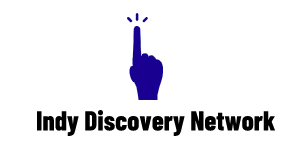
Drugs, alcohol, and other forms of addiction are dangerous, destructive, and harmful to your health, relationships, and work-life. Addiction treatment is essential for those struggling with addiction, as it provides not only a way out but also a path to recovery. Understanding the journey to sobriety is critical to ensure the suitability of treatment options and achieve long-lasting results. In this article, we’ll provide an overview of addiction treatment, the different treatment options available, and what you can expect.
Recognize the Signs of Addiction
The first step towards sobriety is recognizing the signs of addiction. Addiction is characterized by compulsive behaviors, physical and psychological dependence, and craving for drugs or alcohol. If you or your loved one displays these symptoms, it’s critical to seek professional help immediately. Early recognition can help mitigate the impact of addiction and increase the effectiveness of treatment.
The Different Treatment Options Available
Addiction treatment is usually a multipronged approach that involves various therapies to address the physical, psychological, and social aspects of addiction. Some common treatment options include:
Medications: Medications are used to help manage withdrawal symptoms and mood disorders that often accompany addiction.
Behavioral Therapies: Behavioral therapies aim to change negative patterns of behavior and thinking related to addiction.
Support Groups: Support groups provide an excellent opportunity for individuals in recovery to share their experiences and find encouragement from others who have successfully navigated the journey to sobriety.
What to Expect During Treatment
Addiction treatment is a process that requires time, effort, and commitment to achieve success. The first step typically involves detoxification, where the body is gradually weaned off the substance of abuse. This process can take several weeks, depending on the severity of addiction. You may experience withdrawal symptoms during this period, including nausea, vomiting, sweating, tremors, and anxiety.
Following detoxification, you may undergo behavioral therapies or attend support groups to address the underlying psychological and social factors contributing to addiction. The duration of therapy can vary based on individual needs and treatment plans. It’s essential to continue with aftercare programs, such as support groups, to maintain sobriety and prevent relapse.
Benefits of Addiction Treatment
The benefits of addiction treatment are far-reaching and can significantly impact your overall well-being, including:
Improved physical health: Sobriety can help improve your overall physical and mental health by reducing the risk of chronic diseases and mental health disorders.
Enhanced relationships: Addiction can strain relationships, and treatment can help rebuild trust, communication, and intimacy with loved ones.
Positive impact on work-life: Sobriety can help improve work performance, increase productivity, and enhance job stability.
Conclusion:
Addiction treatment is an essential step towards sobriety and improving your quality of life. Recognizing the signs of addiction and seeking help early can increase the effectiveness of treatment and prevent relapse. A range of treatment options are available, including medication, behavioral therapies, and support groups. The journey to sobriety requires a significant commitment of time and effort, but the benefits of treatment, such as improved physical health, better relationships, and a positive impact on work-life, outweigh the challenges of addiction. If you or your loved one needs help, we encourage you to seek professional help and start the journey to sobriety today.


